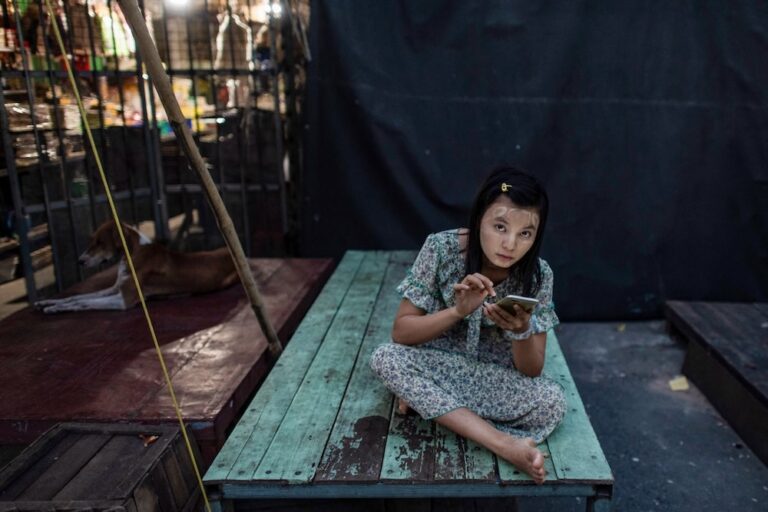(Mizzima/IFEX) – The Burmese military junta has prevented the publication of the writings of several prominent writers who use pseudonyms, and who were involved in Swan offerings to monks during the protests of September 2007. Pieces written under pseudonym by various Burmese writers – including Mar-J, Than Myint Aung, Soe Win Nyien, Oo Swe, Zaw […]
(Mizzima/IFEX) – The Burmese military junta has prevented the publication of the writings of several prominent writers who use pseudonyms, and who were involved in Swan offerings to monks during the protests of September 2007.
Pieces written under pseudonym by various Burmese writers – including Mar-J, Than Myint Aung, Soe Win Nyien, Oo Swe, Zaw Thet Htwe, Poe Phyu, Awpikye and Ludu Daw Amar – have been barred from publication, after several of these writers participated in the Swan offerings led by veteran politician U Win Naing on 24 September.
“As for Mar-J, they said they found his picture among the people offering Swan, and that’s why he was banned,” said a Burmese writer in Rangoon.
Although the writers have not been officially informed of any ban on their works, writings they have submitted under their pen-names have been rejected by the Burmese censorship board without any reason given.
“Even stories on football, which are not even domestic but fall in the international sports news category, are being rejected. The writers were just analyzing how international players are performing. These pieces were not returned by the censorship board,” the editor of a weekly sports journal told Mizzima.
An editor of a Rangoon based magazine said that the banning of writers using pen-names not only affects their writing skills, but is like “murdering” the writers.
“In order to get make a pen-name well-known and recognised, we have to work really hard and it is not easy. Banning work written under an established pen-name is as good as murdering the writer,” added the magazine editor.
Meanwhile, the government made Internet accessible 24 hours a day again on 14 October. However, the junta has not left Internet usage unguarded, but has put in place policemen who are trained in Information Technology to monitor users in cyber cafés, local net surfers told Mizzima.
Internet cafés are also required to install a system that will automatically take a screen-shot of the computers every five minutes to make sure users do not visit political and other banned sites.
Human rights groups consider Burma under military rule to be one of the worst countries for Internet censorship and the restriction of Internet access by the public.


